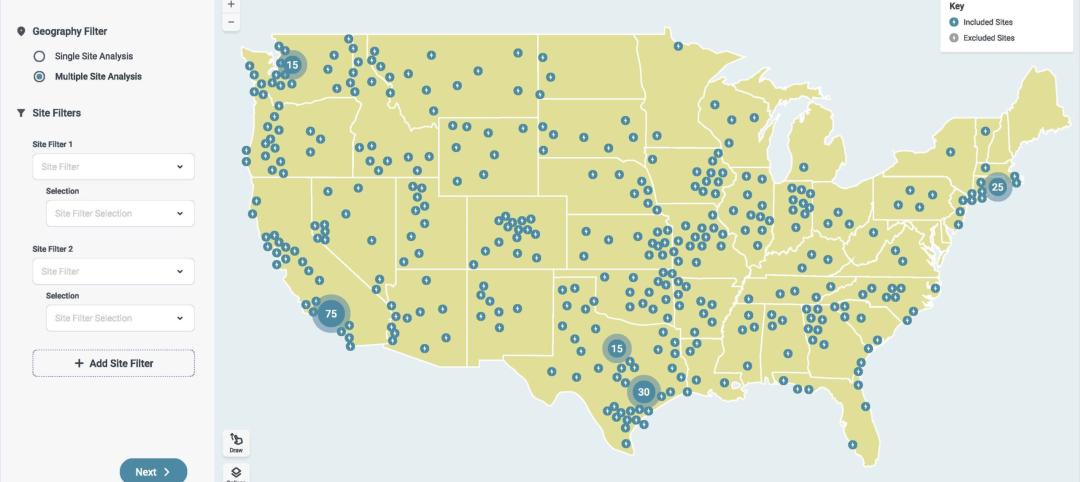Although global hotel deal volume is projected to remain in line with the most recent three-year average in 2013, Jones Lang LaSalle’s Hotels & Hospitality Group believes that signs point to an on-going uptick in Americas hotel transactions activity sooner rather than later. Jones Lang LaSalle revealed five forces which will drive the hotel investment market during the next five years at the Americas Lodging Investment Summit (ALIS) recently at the J.W. Marriott L.A. LIVE.
“There will be a significant amount of property coming to market in 2013 from a combination of the de-leveraging occurring as $55 billion of CMBS matures in the next few years and we’ll see investors who bought earlier in the cycle want their capital gains and they’ll sell,” said Arthur Adler, Americas CEO of Jones Lang LaSalle’s Hotels & Hospitality Group. “You can’t underestimate the composition of hotel ownership over a long period of time as many hotels today are in the hands of traders versus holders.”
Investors should watch the following five key forces and their impact on the hotel market:
1. Boom or bust?: Global deal volume is projected to reach as high as $33 billion this year, in line with the most recent three-year average, and could rise to $50 billion to $70 billion in the medium term. Foreign investors, primarily groups from Asia and the Middle East, have already put $3.2 billion in off-shore capital into hotels in the United States since 2010 and aren’t expected to slow down in the coming years.
2. Hotel transaction level drivers: The United States will account for half the global deal activity as fundamentals remain strong. Improving industry fundamentals, the availability and cost of capital, REIT stock prices, the amount of product on the market and the composition of hotel ownership all have a significant impact on transactions volume and will continue to drive growth.
3. Cash is king, but debt is on its way back: The formidable return of the CMBS market last year improved pricing and terms for borrowers, while drawing other lenders into the hospitality arena. Debt availability should reach a six-year high as domestic and offshore banks, insurance companies, debt funds and mortgage REITs will augment the increased CMBS lending.
4. Increasing the value of a hotel: As top-line revenue rebounds, owners will fight to avoid profit erosion and maintain asset value through increased emphasis on more dynamic and efficient revenue management and analytical tools. Increasing competition for traveler loyalty and third-party travel agents will challenge operators and come at a cost. Hotels will need to invest more in digital marketing efforts and leverage the use of online travel agencies as part of a diversified distribution channel strategy.
5. Let the games begin in Latin America: Economies in Latin America are expected to grow by four percent annually through 2020 and the region’s share of global GDP is slated to increase by 25 percent from 2000 to 2020. Economic reforms, growth in income per capita stemming from increased economic decentralization in several key markets and events such as the 2014 FIFA Soccer World Cup and Summer Olympic Games in Brazil will make the region attractive for growth in the lodging sector. Brazil, Mexico, Colombia, Peru and Chile will be at the forefront of the increase.
As operating fundamentals remain strong, hotels should remain a favored asset class globally among lenders, institutional and offshore investors. With debt simultaneously becoming more available and competitively priced, asset values and transaction volume should continue to rise.
About Jones Lang LaSalle's Hotels & Hospitality Group
Jones Lang LaSalle’s Hotels & Hospitality Group serves as the hospitality industry’s global leader in real estate services for luxury, upscale, select service and budget hotels; timeshare and fractional ownership properties; convention centers; mixed-use developments and other hospitality properties. The firm’s more than 265 dedicated hotel and hospitality experts partner with investors and owner/operators around the globe to support and shape investment strategies that deliver maximum value throughout the entire lifecycle of an asset. In the last five years, the team completed more transactions than any other hotels and hospitality real estate advisor in the world totaling nearly US$25 billion, while also completing approximately 4,000 advisory and valuation assignments. The group’s hotels and hospitality specialists provide independent and expert advice to clients, backed by industry-leading research.
For more news, videos and research from Jones Lang LaSalle’s Hotels & Hospitality Group, please visit: www.jll.com/hospitality or download the Hotels & Hospitality Group’s app from the App Store.
About Jones Lang LaSalle
Jones Lang LaSalle (NYSE:JLL) is a professional services and investment management firm offering specialized real estate services to clients seeking increased value by owning, occupying and investing in real estate. With annual revenue of $3.9 billion, Jones Lang LaSalle operates in 70 countries from more than 1,000 locations worldwide. On behalf of its clients, the firm provides management and real estate outsourcing services to a property portfolio of 2.6 billion square feet. Its investment management business, LaSalle Investment Management, has $47.0 billion of real estate assets under management. For further information, visit www.jll.com.
Related Stories
University Buildings | Dec 8, 2023
Yale University breaks ground on nation's largest Living Building student housing complex
A groundbreaking on Oct. 11 kicked off a project aiming to construct the largest Living Building Challenge-certified residence on a university campus. The Living Village, a 45,000 sf home for Yale University Divinity School graduate students, “will make an ecological statement about the need to build in harmony with the natural world while training students to become ‘apostles of the environment’,” according to Bruner/Cott, which is leading the design team that includes Höweler + Yoon Architecture and Andropogon Associates.
University Buildings | Dec 5, 2023
The University of Cincinnati builds its largest classroom building to serve its largest college
The University of Cincinnati’s recently completed Clifton Court Hall unifies the school’s social science programs into a multidisciplinary research and education facility. The 185,400-sf structure is the university’s largest classroom building, serving its largest college, the College of Arts and Sciences.
Office Buildings | Dec 1, 2023
Amazon office building doubles as emergency housing for Seattle families
The unusual location for services of this kind serves over 300 people per day. Mary's Place spreads across eight of the office's floors—all designed by Graphite—testing the status quo for its experimental approach to homelessness support.
Engineers | Nov 27, 2023
Kimley-Horn eliminates the guesswork of electric vehicle charger site selection
Private businesses and governments can now choose their new electric vehicle (EV) charger locations with data-driven precision. Kimley-Horn, the national engineering, planning, and design consulting firm, today launched TREDLite EV, a cloud-based tool that helps organizations develop and optimize their EV charger deployment strategies based on the organization’s unique priorities.
Market Data | Nov 27, 2023
Number of employees returning to the office varies significantly by city
While the return-to-the-office trend is felt across the country, the percentage of employees moving back to their offices varies significantly according to geography, according to Eptura’s Q3 Workplace Index.
Resiliency | Nov 27, 2023
All levels of government need to act to cope with climate-driven flooding and sea level rise
The latest National Climate Assessment highlights the need for local, state, and federal governments to adopt policies to mitigate the effects of climate-driven flooding and sea level rise, according to a policy expert with the National Resources Defense Council.
MFPRO+ New Projects | Nov 21, 2023
An 'eco-obsessed' multifamily housing project takes advantage of downtown Austin’s small lots
In downtown Austin, Tex., architecture firm McKinney York says it built Capitol Quarters to be “eco-obsessed, not just eco-minded.” With airtight walls, better insulation, and super-efficient VRF (variable refrigerant flow) systems, Capitol Quarters uses 30% less energy than other living spaces in Austin, according to a statement from McKinney York.
MFPRO+ News | Nov 21, 2023
California building electrification laws could prompt more evictions and rent increases
California laws requiring apartment owners to ditch appliances that use fossil fuels could prompt more evictions and rent increases in the state, according to a report from the nonprofit Strategic Actions for a Just Economy. The law could spur more evictions if landlords undertake major renovations to comply with the electrification rule.
Codes and Standards | Nov 21, 2023
Austin becomes largest U.S. city to waive minimum parking requirements
Austin, Texas recently became the largest city in the United States to stop requiring new developments to set a minimum amount of parking. The Austin City Council voted 8-2 earlier this month to eliminate parking requirements in an effort to fight climate change and spur more housing construction as Texas’s capitol grapples with a housing affordability crisis.
MFPRO+ News | Nov 21, 2023
Underused strip malls offer great potential for conversions to residential use
Replacing moribund strip malls with multifamily housing could make a notable dent in the housing shortage and revitalize under-used properties across the country, according to a report from housing nonprofit Enterprise Community Partners.

















